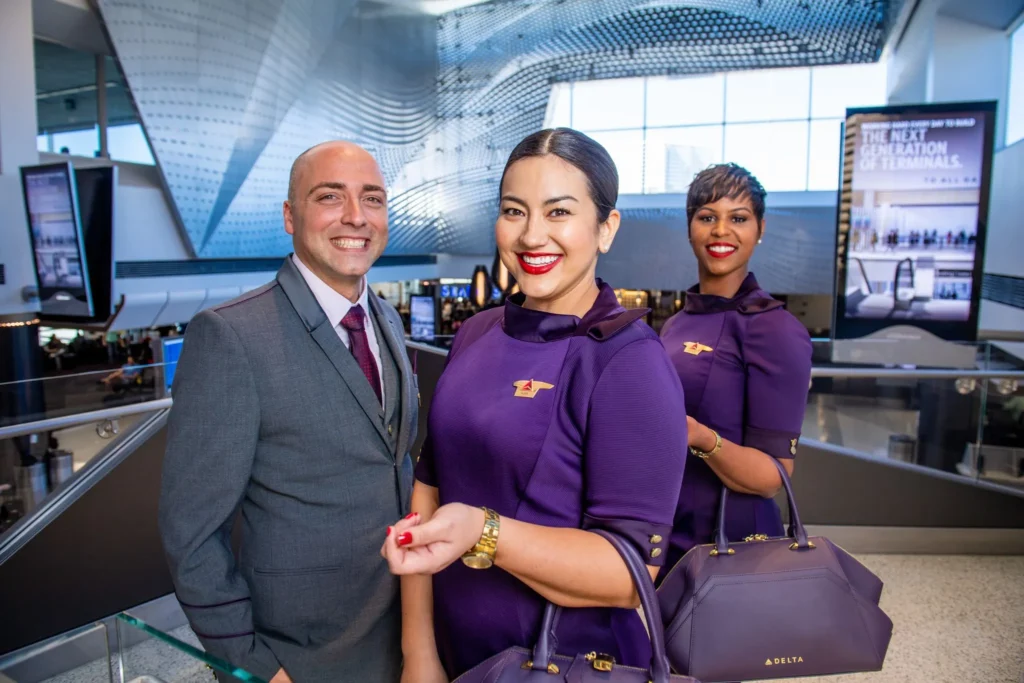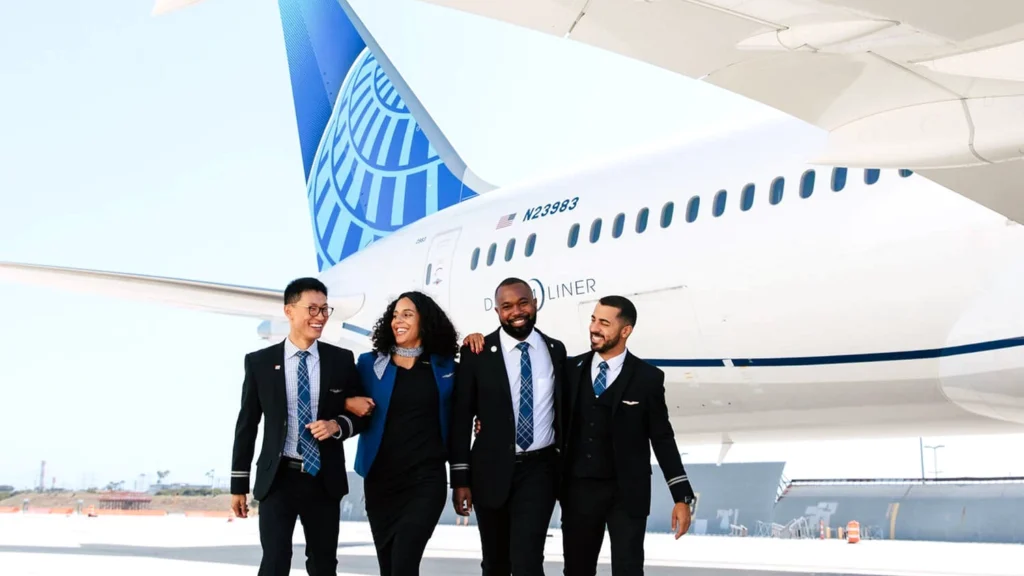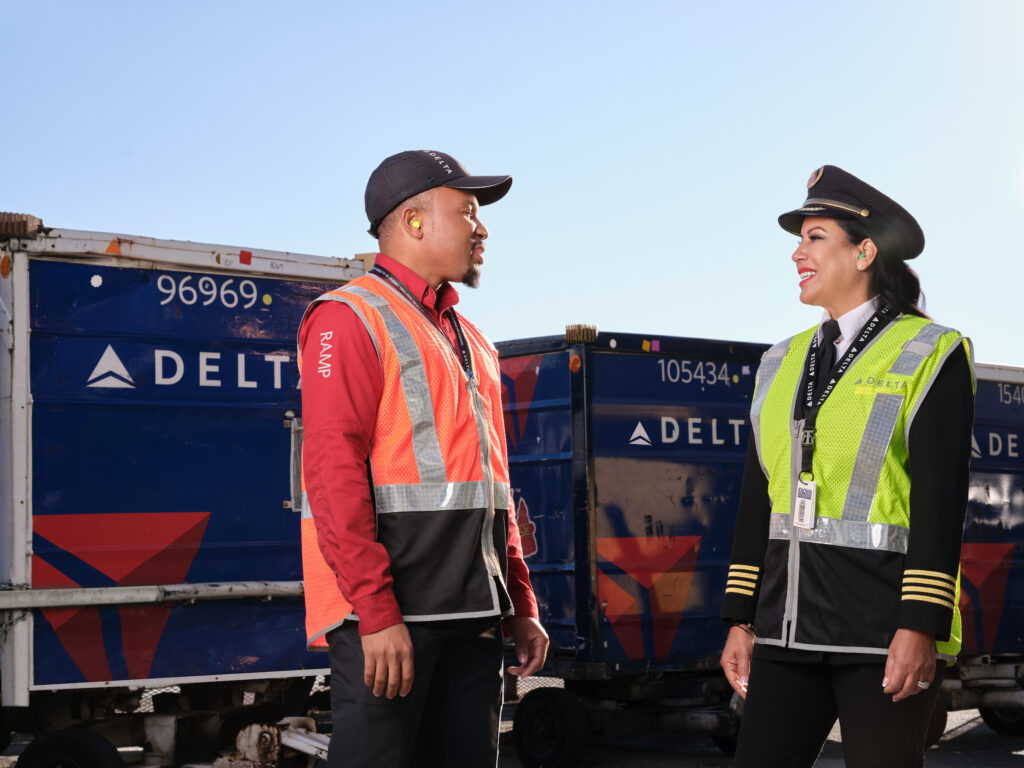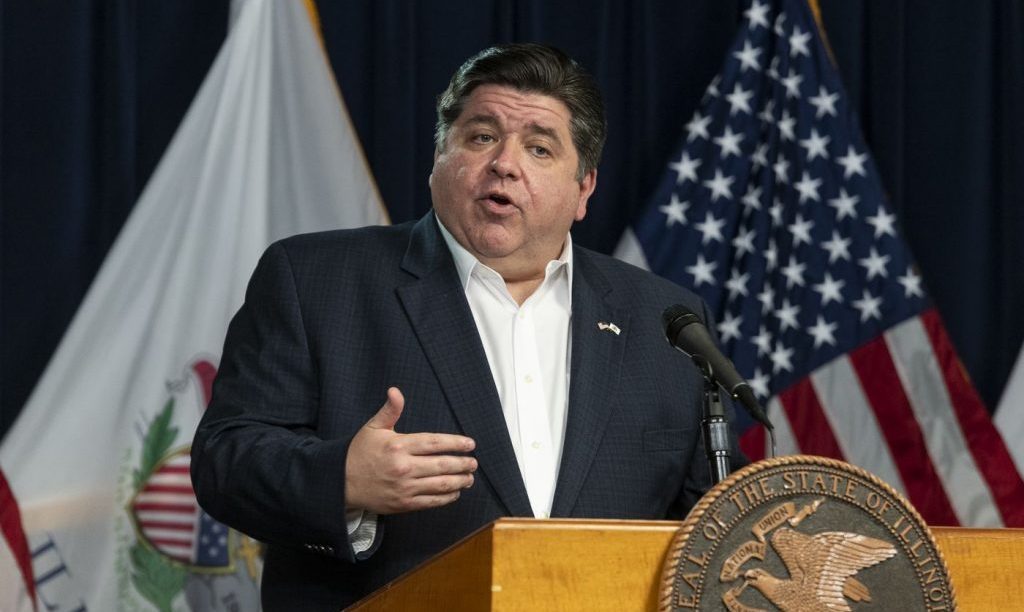
Атланта- Delta Air Lines (DL) сообщила о повышении заработной платы стюардесс и наземного персонала на 4% с 1 июня 2025 года, несмотря на экономическую неопределенность в авиационной отрасли. Повышение заработной платы представляет собой четвертый ежегодный рост Delta после пандемии COVID-19. Джонни Сообщено.
Компания сохраняет свою приверженность конкурентной компенсации, признавая потенциальные рыночные условия на оставшуюся часть 2025 года. Инвестиции Delta в компенсацию работникам достигли совокупного увеличения на 25% с 2022 года по всем фронтовым рабочим группам.
 Источник: Delta Air Lines
Источник: Delta Air LinesDelta увеличивает зарплату сотрудников
Компания Delta Air Lines продолжает традицию приоритизации компенсаций работникам, несмотря на сложные экономические условия. Несмотря на то, что многие перевозчики отказываются от прогнозов по прибыли из-за макроэкономической неопределенности, Delta по-прежнему привержена своей стратегии компенсации рабочей силы.
Увеличение на 4% применяется к почасовой базовой оплате труда наземных сотрудников и бортпроводников по всему миру. Дополнительный 4% прирост будет распределен на основе индивидуальной производительности и конкурентоспособности рынка.
В отличие от профсоюзных авиакомпаний, где трудовые соглашения регулируют повышение заработной платы, непрофсоюзная модель Delta позволяет проводить более регулярные корректировки. Компания успешно поддерживала ежегодные повышения, за исключением 2020-2021 годов, когда пандемия сильно повлияла на отрасль.
Даже в эти трудные времена Delta избегала увольнения сотрудников, в то время как такие конкуренты, как United Airlines (UA) и American Airlines (AA), значительно сократили численность персонала.
 Фото: United Airlines
Фото: United AirlinesСравнение компенсаций промышленности
Подход Delta к компенсации сотрудникам отличается от других крупных американских перевозчиков.
В то время как стюардессы Delta получают регулярное повышение заработной платы, стюардессы United Airlines, как сообщается, прожили пять лет без повышения, а инфляция значительно снизила их покупательную способность в течение этого периода. Посмотреть TheWing Помечено.
Сравнение подчеркивает фундаментальные различия между моделями компенсации в авиационной отрасли.
Союзные контракты обычно становятся «изменяемыми», а не истекают, что часто приводит к длительным периодам переговоров, в течение которых оплата остается статической. Эти переговоры могут длиться годами, и рабочие не смогут бастовать без одобрения федерального правительства — редкое явление даже при дружественных к труду администрациях.
Недавние кампании профсоюзов, нацеленные на стюардесс Delta, утверждают, что бортпроводники American Airlines, Southwest Airlines (WN) и Alaska Airlines (AS) зарабатывают больше, чем их коллеги из Delta. Однако эти сравнения часто не учитывают комплексный компенсационный пакет Delta, в том числе:
- Ведущая в отрасли формула распределения прибыли, генерирующая примерно пять недель дополнительной оплаты
- Плата за посадку была введена в 2022 году, и многие профсоюзные перевозчики изо всех сил пытались ее обеспечить.
- Ежегодные корректировки заработной платы, которые не требуют переговоров по контракту
 Фото: Дельта
Фото: ДельтаНародная философия Дельты
Столетняя бизнес-философия Delta сосредоточена на приоритетности инвестиций сотрудников в качестве основы для превосходства клиентов. Этот подход оказался устойчивым благодаря экономическим циклам и конкурентному давлению.
генеральный директор Эд Бастиан подчеркнул вековую философию компании по инвестированию в сотрудников для обеспечения превосходства клиентов, отметив, что этот подход помогает Delta сохранять свои конкурентные преимущества, несмотря на проблемы отрасли.
Способность авиакомпании поддерживать прибыльность, предлагая конкурентоспособные компенсационные пакеты, представляет собой то, что руководство компании описывает как свой «секретный соус» - непрофсоюзную модель, которая обеспечивает гибкость при предоставлении высокоуровневой отраслевой компенсации.
Программа Delta по распределению прибыли, которую профсоюзные активисты иногда преуменьшают, потому что она не «гарантирована», неизменно приносила значительную пользу сотрудникам.
Эта стратегия компенсаций создает положительную обратную связь: хорошо оплачиваемые сотрудники обеспечивают превосходное обслуживание, стимулируя предпочтения клиентов и финансовые показатели, что, в свою очередь, позволяет продолжать инвестиции в рабочую силу.
Поскольку Delta ориентируется на экономическую неопределенность в 2025 году, этот подход, ориентированный на людей, остается центральным в ее бизнес-стратегии.
Лучшее место для работы
Авиакомпания предоставляет комплексные финансовые преимущества, помимо распределения прибыли. К ним относятся конкурентоспособные базовые зарплаты с регулярным ежегодным увеличением, ежемесячные бонусы за операционную эффективность до 100 долларов США, бесплатный финансовый коучинг с возможностью заработать 1000 долларов США для экстренных сбережений и пенсионные пособия с 6% матча плюс автоматические 3% взносы на счета 401 (k).
Delta продолжает получать признание за превосходство на рабочем месте. Авиакомпания недавно заняла 15-е место в списке Fortune 100 лучших компаний для работы ®, оценка, проведенная специалистами по культуре на рабочем месте в Great Place To Work.
Кроме того, JUST Capital и CNBC назвали Delta ведущей авиакомпанией в своем списке Just 100, который оценивает компании на основе приоритетов, важных для американцев, включая справедливую заработную плату и инициативы по благополучию сотрудников.
Оставайтесь с нами. Следуйте за нами в социальных сетях для последних обновлений.
Присоединяйтесь к нам в Telegram Group для последних обновлений авиации. Следуйте за нами в Google News
Delta избегает 10% тарифов Трампа на новые самолеты Airbus
Пост Delta Hikes Зарплата бортпроводников и наземного персонала на 4% впервые появилась на Aviation A2Z.
















